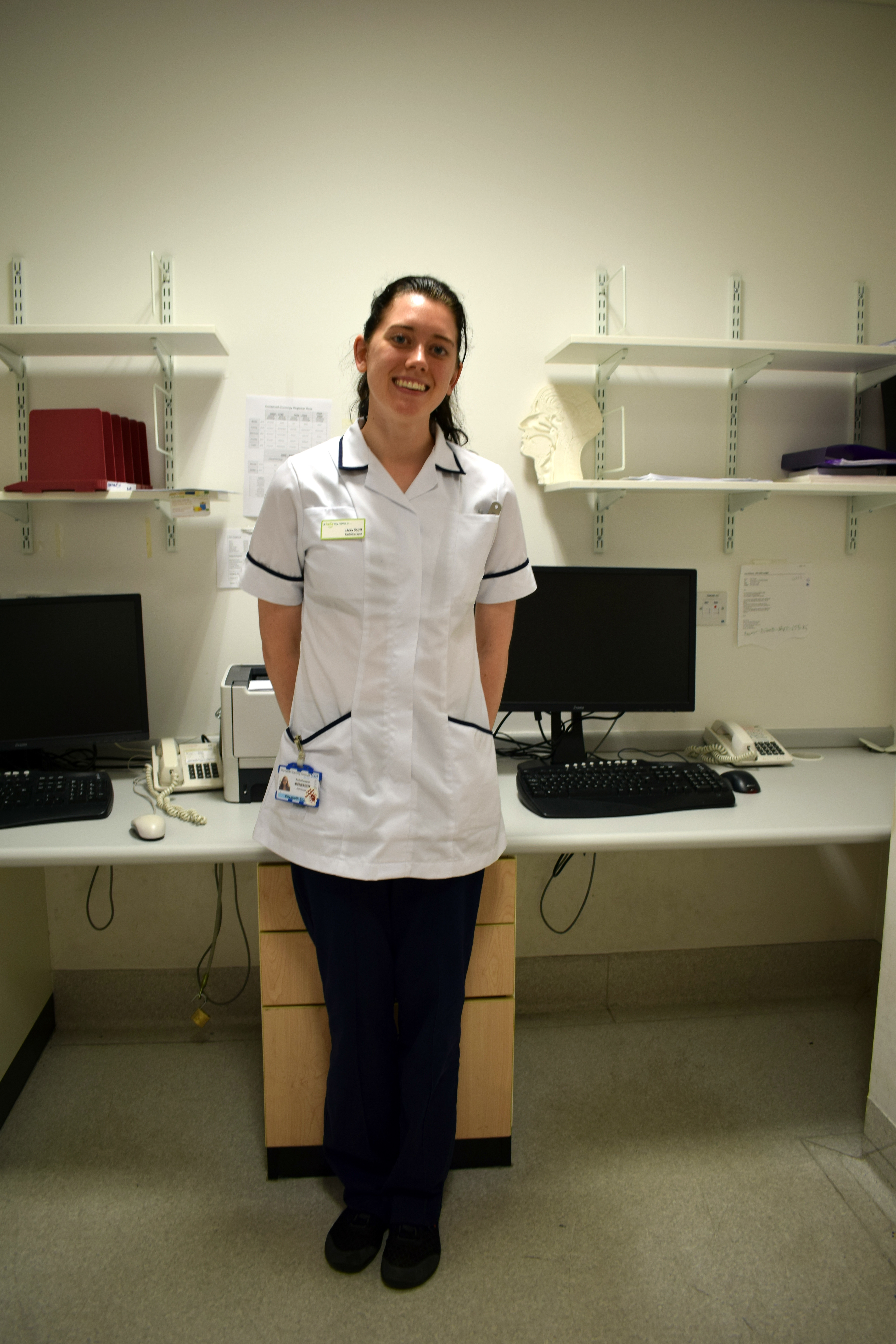Lizzy
"We need to be able to recover their quality of life - and it doesn’t matter whether that lady is 25, or 85, it’s about helping people regain their lives and their sex lives. It is really important."

Lizzy
"I came from an unconventional background into radiotherapy. I worked in osteology, i worked in human evolution, and worked with a lot of bones, a lot of dead people - but I decided that working with alive people would be a bit more rewarding! The osteology was the cross-over [with radiotherapy]… human anatomy. And I had some family reasons for wanting to work here, which all lead into it. I suppose you could say I fell into it almost by accident but it was a good accident.
My role is a band 5 radiotherapist. I’ve not been qualified that long. I do all the basics of the job, lots of scanning patients getting them ready for treatment. But currently I work on the treatment machine. It’s a really mixed bag of diagnosis's & treatments - but it’s really rewarding. It’s quite variable…lots of different challenges, lots of difficult setups.
Lots of different people you meet- so lots of stories. Lots of different problems that you need solve, both on the machines but also when you’re just chatting to people and hearing other problems they have in their lives. And sometimes you just have to listen and pick up on things because people don’t always make it obvious — but when you dig a little bit deeper… there’s other stuff going on that needs to get sorted, even though it might not be directly or immediately related to their cancer treatment, but it needs to be dealt with as well.
A moment that’s stuck in my mind most recently is when I was covering in simulator and I was scanning a very ill palliative, cord compression patient. She had actually walked into A&E 3 days earlier, and they scanned her, gave her a MRI... and they found this cord compression quite high on her spine - top of T-spine. And she was in horrendous pain. To the point where they had given her pretty much every single painkiller under the sun, and she was still screaming out in pain.
... And this was one of my most difficult experiences I have ever had, trying to scan a patient so that we can get them some treatment into them. In the end, we had to give her gas and air like you do when someone is in labour, it was the only way of getting her to lay down flat... It took a massive collaboration between doctors, nurses, radiographers, her family, HERSELF… she was so brave. She basically just gritted her teeth and just got on with it, despite the pain, because she knew she needed this treatment. I’ve never seen anyone in so much pain and be so brave like that before. And i know both of the registrars and consultants hadn’t seen anything like that before too. We were all shocked. And that has something that has really stuck with me.
The best thing was that we got her all scanned and we got her the treatment.
And I remember her husband was just crying because we had managed to do it, and he was so happy.
But it was fantastic to have a good result in the end. As far as I am aware - she’s doing a bit better… but unfortunately part of the job is that we don’t always get to see people get better following treatment, or see them at the end.
One funny moment was whilst discussing the use of dilators; my patient was laughing her head-off. Fortunately it was a very good chat and funny conversation.
...We now have some much better products on offer. That’s something in the department that we’re hoping to get extra funding for. I don’t want call them ‘sex toys’ but it’s hard to know what to call them! But we need them to help offer people, to help improve their quality of life later down the line. A lot of people struggle later on, they can’t have sex. It’s painful and uncomfortable - and they also need to continue to have physical examinations - But if we don’t sort out that care for them, then.. they’re not going to be able to manage that. So by using the clinical dilators, we can help with that. Unfortunately our dilators are very clinical and medical looking devices. We can replace them with ones that look much more appealing, more attractive, more ergonomic to the shape of the vagina, and hopefully be able to improve that for them.
We need to be able to recover their quality of life - and it doesn’t matter whether that lady is 25, or 85, it’s about helping people regain their lives and their sex lives. It is really important.
It sounds really corny...
- but always put yourself in someone else’s shoes because… that is pertaining to radiotherapy… because it’s sometimes easy… as a radiographer … its the end of the day, you’re tired. And you’re like this is just going to be another problem… It might just be another problem to YOU, but for them it’s their life, and sometimes it is easy to forget."

